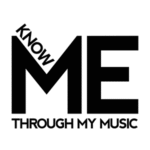Ana never set out to be an activist. She just wanted to write honest songs. But when she stood on a makeshift stage at a community rally and sang her song Rise Up, something shifted. People cried. Chanted. Clapped in rhythm. For a few powerful minutes, the crowd became one voice—and Ana realized her music could do more than entertain. It could unite. It could speak truth.
From civil rights to climate justice, music has always been more than a backdrop. It’s been a battle cry, a balm, and a bold statement. Today, on platforms like KMTMM.com, artists are still using their voices to push for progress—and listeners are showing up to support it.
Why Music Still Moves Movements
Music has a way of saying what speeches can’t. It travels through headphones, marches, courtrooms, and classrooms. It captures emotion, builds memory, and creates solidarity—even among strangers. Whether it’s protest songs, anthems, or raw lyrical confessionals, music delivers the message straight to the soul.
Ana’s Journey from Indie Artist to Impact Artist
After that rally, Ana began writing intentionally. Songs about injustice. About community. About hope. Her lyrics were rooted in her own experience as a Latina woman navigating systems that weren’t made for her.
She uploaded those tracks to KMTMM, where she found a network of artists doing the same—sharing pain and power through music. Collaborations followed. A local filmmaker used her song in a documentary. Activist groups began using her lyrics in videos and rallies.
And her audience? It didn’t shrink—it expanded. People are hungry for music that means something.
Music + Justice: A Powerful Remix
Here are just a few ways artists are driving change:
- Writing protest music that addresses issues like racial injustice, immigration, and mental health
- Collaborating with poets, activists, and speakers to blend voices and messages
- Releasing fundraising singles or organizing benefit concerts
- Using platforms like KMTMM to connect with like-minded creators and amplify causes
It’s Not About Being Political—It’s About Being Present
Some artists hesitate to speak out, afraid they’ll lose fans or overstep. But more often than not, fans appreciate authenticity. If something matters to you—your roots, your people, your truth—then it belongs in your art.
Conclusion
Ana didn’t plan to become a voice for change. She just told her truth. And that truth resonated. Music has always been a force in movements because it taps into what makes us human—feeling, connection, and courage.
Want to be part of that change? Explore how artists are using their voices for justice on KMTMM.com, where music is more than a sound—it’s a statement.



